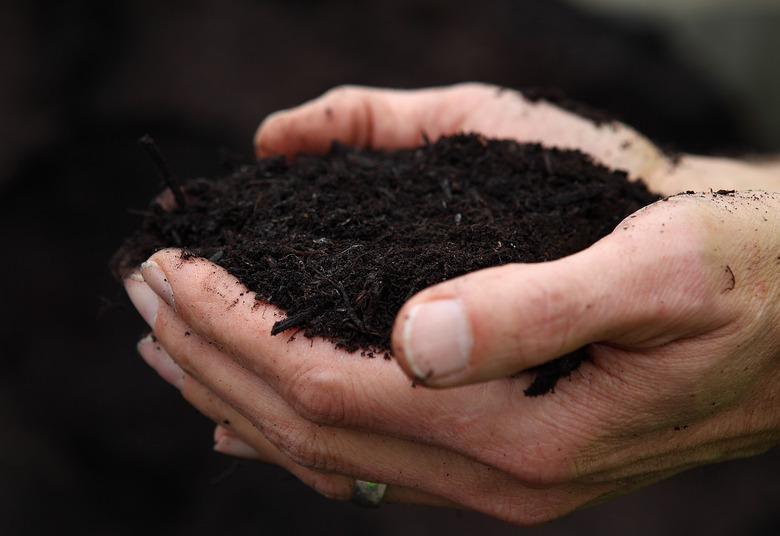Compost & Cockroaches
Rich compost helps improve soil structure and fertility. Earthy and bountiful, compost can boost a garden's productivity by providing plants the nutrients they need to flourish. But the decaying food and plant matter needed to create compost can also create a home for a pest you probably have no desire to see in or around your home: cockroaches.
About Compost?
Step 1
Compost is the result of a controlled process — composting — that breaks down plant materials and forms a biologically active material that is rich in nutrients. Composting speeds up the natural process of decomposition. Organisms, such as bacteria, fungi, beetles, centipedes, earthworms and cockroaches, help break down natural materials into simpler compounds, making a rich, soil-like substance, called humus.
Benefits of Compost
Step 1
In addition to keeping waste out of landfills, compost offers gardens a natural, rich and chemical-free fertilizer. Compost builds fertile soil, feeding microbes, earthworms and other organisms that in turn feed gardens. Soil that is amended with regular additions of compost gets more fertile each year. Compost adds nitrogen, phosphorus, potassium, calcium, sulfur and micronutrients to the soil. Compost also improves the soil structure by lowering its density, which increases porosity and permeability. When amended with compost, clay soils can be protected against compaction and sandy soils are better able to retain water and nutrients.
- Rich compost helps improve soil structure and fertility.
- But the decaying food and plant matter needed to create compost can also create a home for a pest you probably have no desire to see in or around your home: cockroaches.
Cockroaches in Compost
Step 1
Among the creatures you might find in your compost pile or bin are cockroaches, fast-moving insects that feed on mostly dead or immobile things. They are particularly fond of decaying organic matter, which makes them partial to the fruits, vegetables and other green matter breaking down in your compost pile. Repugnant as you may find cockroaches, they're a normal part of the composting process, aiding in the decomposition of the materials in your bin.
Getting Rid of Cockroaches
Step 1
While cockroaches are a natural part of composting, you may not be interested in creating a home for these creatures, which also like to invade houses in search of food. An initial step for avoiding compost-to-house cockroach transfers is to move your pile or bin away from your house. To kick the bugs out of your compost, try turning the pile or bin frequently to disrupt the roaches' living conditions. Water the pile often — cockroaches prefer dry areas and will move out if the environment is too wet. After they've left, you can let the compost dry out.
- Among the creatures you might find in your compost pile or bin are cockroaches, fast-moving insects that feed on mostly dead or immobile things.
- While cockroaches are a natural part of composting, you may not be interested in creating a home for these creatures, which also like to invade houses in search of food.
References
- Texas A&M University: Soils and Composting: It All Begins With the Soil
- Vegetarian Times: Compost 101
- Texas A&M AgriLife Extension: Compost Brings Life
- The Arizona Republic: Roaches are Natural Part of Your Compost Bin's Ecology
- California Department of Resources Recycling and Recovery: Compost — What Is It?
